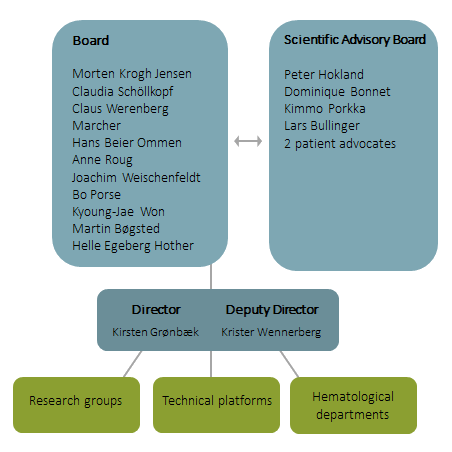The Danish Research Center for Precision Medicine in Blood Cancer works to improve treatment, quality of life and survival for patients with blood cancer by identifying and developing drugs that target the specific cancer cells of the individual patient – also known as personalized medicine or precision medicine.
Initially, the research centre will focus on myelodysplastic syndrome (MDS) and acute myeloid leukemia (AML) as the outcome of treatment of these specific diseases is still poor, despite numerous clinical trials. In the future, the hope is to expand this research to other types of blood cancer.
The Danish Research Center for Precision Medicine in Blood Cancer brings together researchers and clinicians from haematological departments in all five Danish regions in close collaboration with basic cancer researchers from The Finsen Laboratory, Biotech Research and Innovation Centre (BRIC), and DanStem, University of Copenhagen.
The project extends from the identification of patient's cancer stem cells, transplantation of those in mouse models, deep molecular characterization to treatment based on comprehensive drug screening of the individual patient's cancer stem cells, and life quality studies. In addition to treating patients in real time based on these screens, we hope that our basic molecular studies will lead to development of new therapies for patients. The nation-wide collaboration will strive to ensure that all Danish MDS and AML patients are given the same opportunity of personalized medicine.
The research centre is in contact with representatives from patient organisations to ensure communication between clinicians/researchers and patients, hoping that both scientific and clinical progress will reach out to the patients and their relatives in a short time. In addition, the center strives to strengthen education for students, clinicians and researchers in hematology.
The research centre is hosted at Biotech Research and Innovation Centre, BRIC, University of Copenhagen, and chaired by Director, Professor, Chief Consultant, Kirsten Grønbæk, Rigshospitalet, and Deputy Director, Professor Krister Wennerberg, BRIC.

